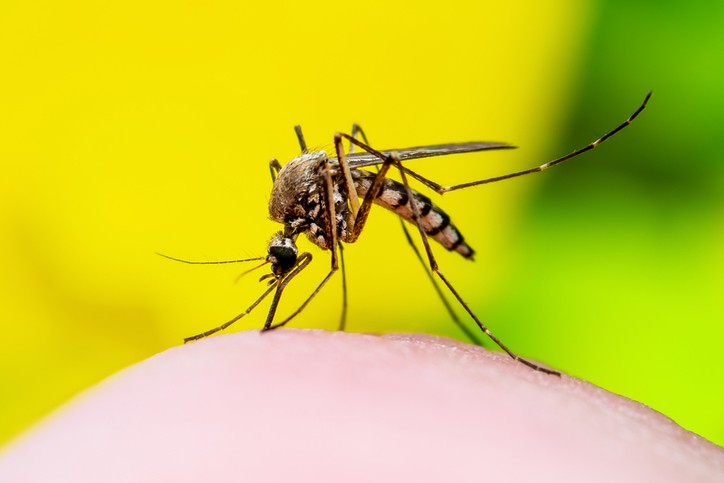Mosquitoes are highly dangerous creatures. In fact, they are the deadliest animal in the world, causing more than one million deaths per year by transmitting a variety of serious illnesses. As mosquito control professionals, one of the ways we provide our customers with the best mosquito control possible is by bringing awareness to mosquito-borne illnesses and how to prevent them.
In our last mosquito-borne illness spotlight, we talked about Eastern Equine Encephalitis (EEE), which can cause symptoms from joint pain and fever to meningitis and encephalitis. In addition to spreading EEE, mosquitoes are responsible for transmitting an illness known as dengue.
Here is some information on dengue, including how it is transmitted and its symptoms:
Where does dengue most commonly occur?
According to the American Mosquito Control Association, dengue can occur on multiple continents such as North and South America, Asia, and Africa. Thousands of cases of dengue fever have been reported in Venezuela, Indonesia, and Puerto Rico. The United States such as Florida, Hawaii, and Texas have also reported increasing numbers in dengue cases over the past decade or so.
What is dengue?
Dengue is an illness that can be caused by four different viruses (Dengue virus 1, 2, 3, or 4). This means that one person can technically be infected with dengue as many as four times in his or her lifetime. According to the Centers for Disease Control and Prevention, the most common symptoms of dengue include:
- Nausea and vomiting
- Rash
- Aches and pains, especially eye, joint, muscle, or bone pain
Symptoms of dengue can last anywhere from two to seven days, with most people recovering after about a week.
Dengue can be either mild or severe. Severe dengue can result in shock, internal bleeding, and sometimes even death. Signs of severe dengue can include:
- Bleeding from the nose and gums
- Vomiting
- Feeling tired or restless
- Stomach pain
How is dengue transmitted?
Dengue viruses are spread through the bites of infected mosquitoes. Mosquitoes that are capable of transmitting dengue are Aedes aegypti mosquitoes and Aedes albopictus mosquitoes. Mosquitoes can transmit dengue to other humans after they bite someone who is infected with the virus. These mosquitoes bite during the day and night and lay their eggs near standing water.
The mosquitoes responsible for transmitting dengue viruses can also transmit other mosquito-borne illnesses like Zika and chikungunya viruses.
What precautions can be taken to help prevent mosquito bites around the home?
There are several ways to prevent mosquito bites and reduce the chances of contracting a mosquito-borne illness in or around your home. Here are a few of them:
- Infants are at a higher risk for contracting severe dengue, so dress your child in clothing that covers their arms and legs when outside
- Do not use products containing oil of lemon eucalyptus (OLE) or para-menthane-diol (PMD) on children under three years of age
- Get rid of any areas of standing water in your yard
- Use EPA-registered insect repellents
While DIY mosquito control is good, the best way to prevent mosquito bites is to hire a professional. At Mosquito Authority, our four-step process ensures we provide our customers with the best mosquito control possible. We care about the health and happiness of your family, so find your local Mosquito Authority today to reclaim your backyard from mosquitoes.

